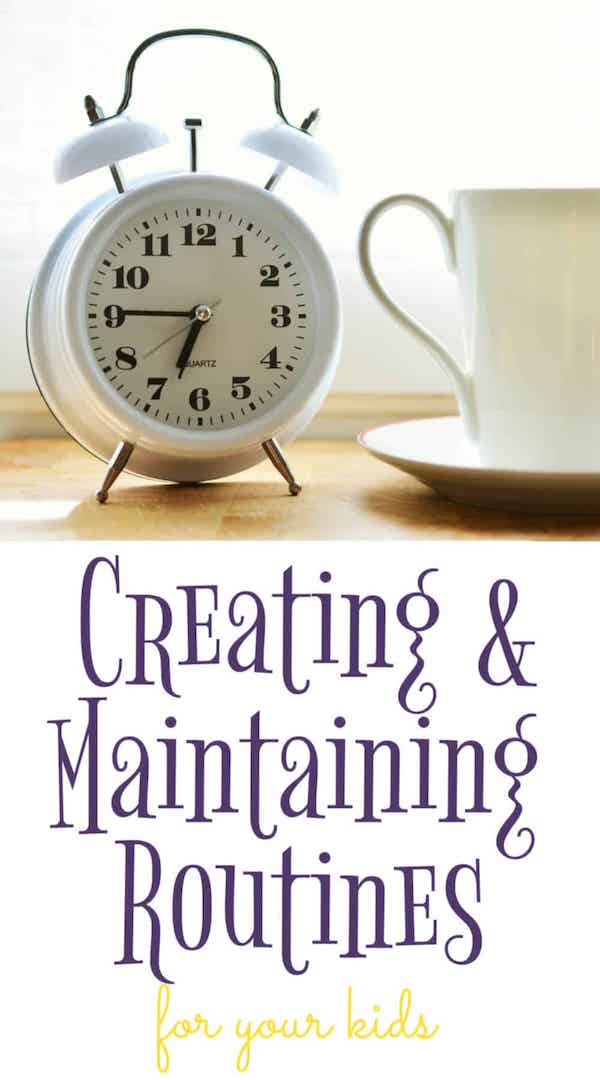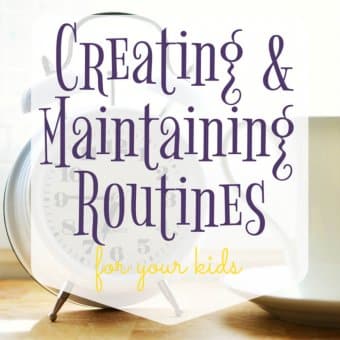Routines are a key aspect of a child’s life. They help to provide a sense of security and certainty. Setting routines for your kids can also help them understand the meaning of time, time management, and other life skills.
Routines will vary from family to family. They can include daily routines such as preparing for school, mealtime, and bedtime; to weekly routines like game nights or special 1:1 time with individual parents. Each routine a family implements is important. When children know what is expected of them on a day-to-day basis there are less likely to be power struggles.

Here are some examples of routines we can implement in our homes:
Morning routines
Each family has a way their morning flows after wake up time. This may include having breakfast, getting dressed and brushing your teeth. The exact routine will evolve and vary as your kids get older depending on their age appropriate needs.
Preparing for school routines
Preparing for school is such an important routine as the time we have to devote to it is limited and we need to be very goal oriented. For younger kids it can be helpful to have some sort of chart to help them know the tasks, and the order in which they need to be completed. My kids, in the past, have used a magnetic chart (made by them) that they flip up every time they have completed an item on the list. Charts don’t have to be just for getting ready for school, they can be useful for other routines as well.
Mealtime routines
We all have routines or rules surrounding mealtime. This may include setting the table in preparation, discussing the day’s events while eating as a family and politely waiting for all family members to finish eating before anyone leaves the table.
Mealtime routines can feel particularly special when they involve asking each family member about their day. Kids can mention the good parts of their day and anything that worried or upset them. This gives children a chance to feel heard. As busy parents we sometimes don’t get a chance to have these discussions so dedicating dinnertime to this can really help.
Bedtime routines
As a sleep consultant I’m particularly fond of bedtime routines. Not only do they promote literacy (if you include book reading), attachment and bonding, and teach important hygiene skills (e.g. bathing and teeth brushing), but they also provide a cue to your baby that it is time to sleep. Bedtime routines can reduce bedtime battles and night wakings. This is especially so if your routine is consistent – same steps and same order – every night.
I also love bedtime because I get to spend quality time with my children, especially on days I don’t get to see them much. Here are some potential ideas: reading, pajamas, teeth brushing, quiet play, lullaby etc.
As children grow, routines can be useful for establishing boundaries and guidelines in your home. Establishing predictable routines can make life run smoother and help your children feel safe and secure.





